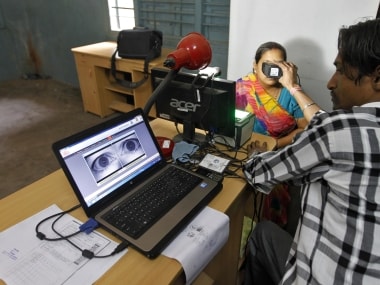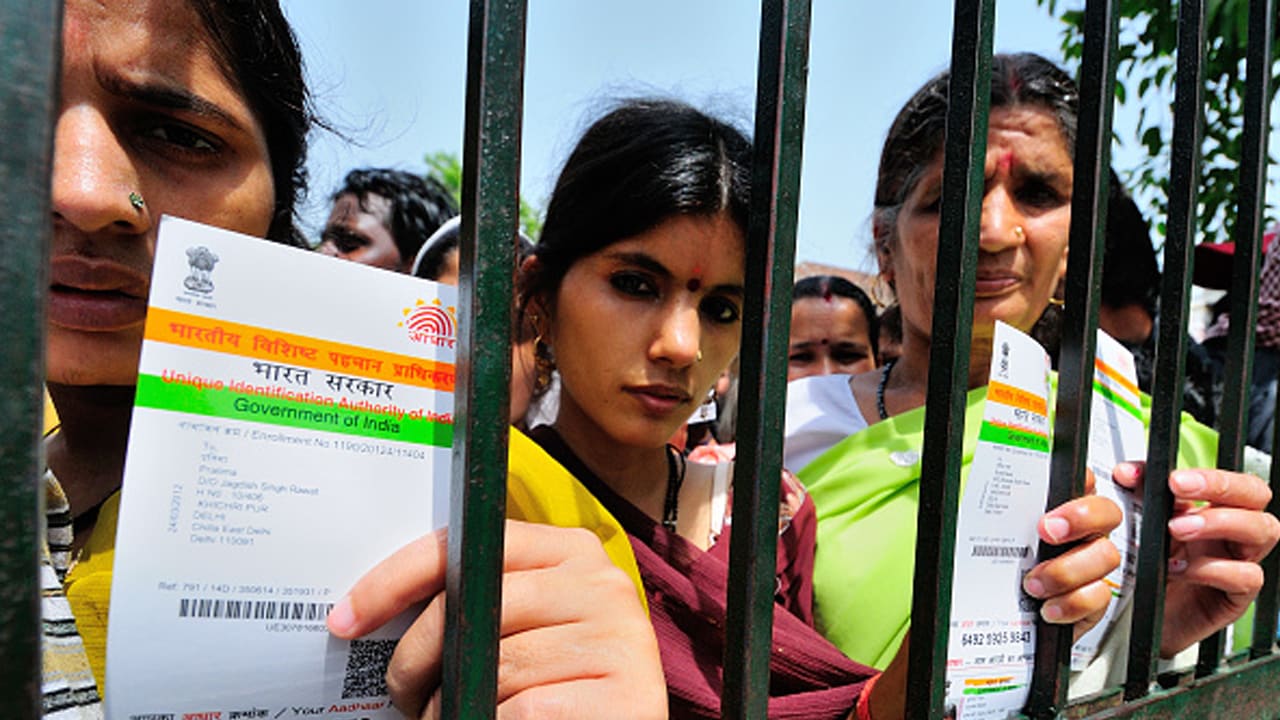Editor's Note: This is a two-part series which will be taking stock of all the important arguments that have taken place so far in the Aadhaar Supreme Court hearings. Part 1 focusses on Days 1 to 15 and Part 2 (the concluding part) will focus on Days 15 to 25 of the hearings. To read our complete coverage of the Aadhaar Supreme Court hearings, head over the list of stories at the end of the article.Â
After Part I which dealt with the contentions from Days 1 to 15, Part II lists the contentions made by the petitioners from Days 15 to 19, and those of the State from Days 20 to 25. This includes arguments by senior counsels PÂ Chidambaram, KV Viswanath, Anand Grover and others. Attorney General KK Venugopal is currently arguing for the State.
On Days 15 and 16, senior counsel P Chidambaram argued extensively on Aadhaar as a money bill.
14. Aadhaar as a money bill: A money bill, under the Constitution, can deal ‘only’ with six listed issues, such as imposing taxes, governmental borrowing of money, or withdrawing money from the Consolidated Fund of India. The term ‘only’, it was argued, must be interpreted strictly to classify a given bill as a money bill. Any bill incorrectly passed as a Money Bill strikes at the very root of one of the basic features of the Constitution, ie federalism. A money bill, in order to be one, cannot have any provision beyond the six listed provisions.
15. Interim orders of the Supreme Court on deadlines: A significant development on Day 16, was the passing of interim orders by the Supreme Court, extending the deadlines for Aadhaar based linkages until the disposal of the case. An exception was drawn for the deadlines for the Section 7 benefits, though the government has since extended the deadline for the Section 7 benefits as well.
From Days 16 to 18, senior counsel KV Viswanath argued against the de-facto compulsion under the Aadhaar Act.
16. De-facto mandatory Aadhaar and indirect coercion: KV Viswanath argued that though Aadhaar was framed as a voluntary scheme, it had in fact been made mandatory through the various notifications. As a result, people are being forced to enrol in Aadhaar and part with their identity information in order to obtain their statutory entitlements. Terming this as ‘indirect coercion’, it was argued that this led to a barter of constitutional rights. Further, refusing entitlements to those who chose not to enrol leads to a violation of the right to equality.
17. Limits on powers to issue compulsions under the law: The state, it was argued, has limited powers to introduce compulsions under the law: as punishment for breaking the law, to aid law enforcement and to prevent potential law-breaking. The compulsions issued via Aadhaar were neither proportionate nor reasonable.
On Days 18 to 19, the remaining petitioners, represented by senior counsels Anand Grover, Meenakshi Arora and others concluded the case for the petitioners.
18. Aadhaar project goes beyond the objectives of the Aadhaar Act: Senior counsel Anand Grover took the stand that the entire Aadhaar project was being operated as a vehicle of the state for myriad objectives, and goes beyond the stated objectives of the Aadhaar Act. There were several activities that were unregulated by the Act, such as the establishment of KYR+ (Know your resident) and illegal sharing of data with State Resident Data Hubs (SRDHs). Further, there was no evidence of destruction of data with the SRDHs, as suggested by the State. The complete violation of interim orders of the Supreme Court was also pointed to.
19. NRIs, children, and ‘number of the beast’ Aadhaar: The effect on specific sections of society was raised, including on the rights of a child, such as making the right to education subject to Aadhaar, and the issues of transgender persons and NRIs. Objections were also raised to Aadhaar enrolment by ‘conscientious objectors’, based on the belief of certain Christians that Aadhaar was similar to the prophetic ‘beast’ in the Book of Revelations.
20. Lack of remedies, excessive delegation, and Aadhaar cancellation powers: Other issues raised include the lack of remedies to people under the Aadhaar Act was raised as a challenge to its constitutionality. An excessive delegation of rule-making power to the UIDAI was also raised. Also, the power of the UIDAI to deactivate or cancel an Aadhaar number at its discretion was raised. In view of this, authentication failure being seen as impersonation and the issue of the onus being on the people to update their biometrics from time to time under the Aadhaar regulations was pointed to.
On Day 20, the State commenced its arguments. On Days 20 to 21, Attorney General KK Venugopal argued that the right to privacy must give way to the right to life.
21. Tremendous effort and Rs 9,000 crore investment in Aadhaar: The Attorney General argued that a tremendous effort had gone into setting up Aadhaar, and several alternatives including smart cards had been taken into consideration. For instance, it was pointed out that smart cards had been rejected in favour of the advantages of de-duplication processes in a centralised system. The World Bank’s Support to Aadhaar was also cited. Aadhaar, it was argued, was designed to ensure the least possible violation of privacy. It was further stated that an investment of Rs 9,000 crores had been made in the Aadhaar system. The cost of Aadhaar itself, however, was less than $1.
22. Official identification is a basic human right: Official identification, it was argued, could help reduce poverty, by helping achieve economic development, participation in the electoral process, as well as provision of governmental benefits. It was thus more than a convenience, but a fundamental human right. The right to privacy, it was argued, must give way to distributive justice. The Supreme Court, however, stated that political guarantees were meant to advance economic and social rights, and not instead be foregone for their sake.
On Days 22 to 23, the CEO of UIDAI, Ajay Bhushan Pandey, made his PowerPoint presentation, to establish that Aadhaar was a secure, well-thought-out system.
23. Minimal data collection and high-security standards: Through the PowerPoint presentation, it was sought to establish that Aadhaar was a well thought-out, secure system, which adopts privacy by design. The entire Aadhaar process from enrolment to authentication to updation was discussed in detail to prove these factors. The high quality and security standards applicable to enrolment agencies, Aadhaar certified biometric devices, data centres, etc. were discussed. Foreign companies, it was stated, did not have access to any data, and authentication data in silos cannot be merged. The Virtual ID system as an additional measure was also discussed. Lastly, 20 questions put forth by the petitioners were also answered.
On Days 24 to 25, Attorney General KK Venugopal then resumed his arguments, seeking to prove that Aadhaar is a just, fair, and a reasonable law.
24. Aadhaar meets legitimate interests and proportionality requirements: It was argued that in today’s digital era, Aadhaar was the best way to prevent money laundering and the dissipation of benefits. Several American judgments were cited, which had found the collection of fingerprints to be a minor inconvenience, minimally intrusive and not a ‘fundamental decision’. Fingerprinting, further, carries no presumption of criminality. American judgments were also cited which had held that wide latitude should be given to the State when implementing social welfare schemes.
25. AÂ Court cannot second-guess the intentions of the executive: Arguing on the balance of powers between the organs of the state, it was asserted that the Court cannot second guess the intentions of the executive. Further, American judgments were cited to argue that the constitutionality of Aadhaar should be judged based on what it is, and not based on hypothetically what it could be. Further, it was argued that there was a need to balance competing interests, of the right to privacy and the right to life.
Arguments of the state will continue from 1o April.
You can read our coverage of the Aadhaar Supreme Court hearings below.
Why SC needs to look into technical evidence of Aadhaar’s surveillance capabilities
Lack of governmental ownership of CIDR’s source code can have serious consequences
Will State give citizens rights only if they agree to be tracked forever, asks lawyer Shyam Divan
Petitioners argue on centralisation of data and challenge Aadhaar’s claims on savings
Petitioners argue for a voluntary ID card system that does not collect user data
Aadhaar is architecturally unconstitutional, argue the petitioners
Petitioners argue that Aadhaar violates dignity by objectifying and depersonalizing an individual
Petitioners seek compensation for starvation deaths and extension of March 31st deadline
Entire Aadhaar project is beyond the stated objectives of Aadhaar Act, argue petitioners
Aadhaar hearing: Supreme Court expresses concerns with data breaches, Aadhaar security and profiling
The author is a lawyer and author specialising in technology laws. She is also a certified information privacy professional.
Published Date: Apr 08, 2018 09:56 AM | Updated Date: Apr 08, 2018 09:56 AM

